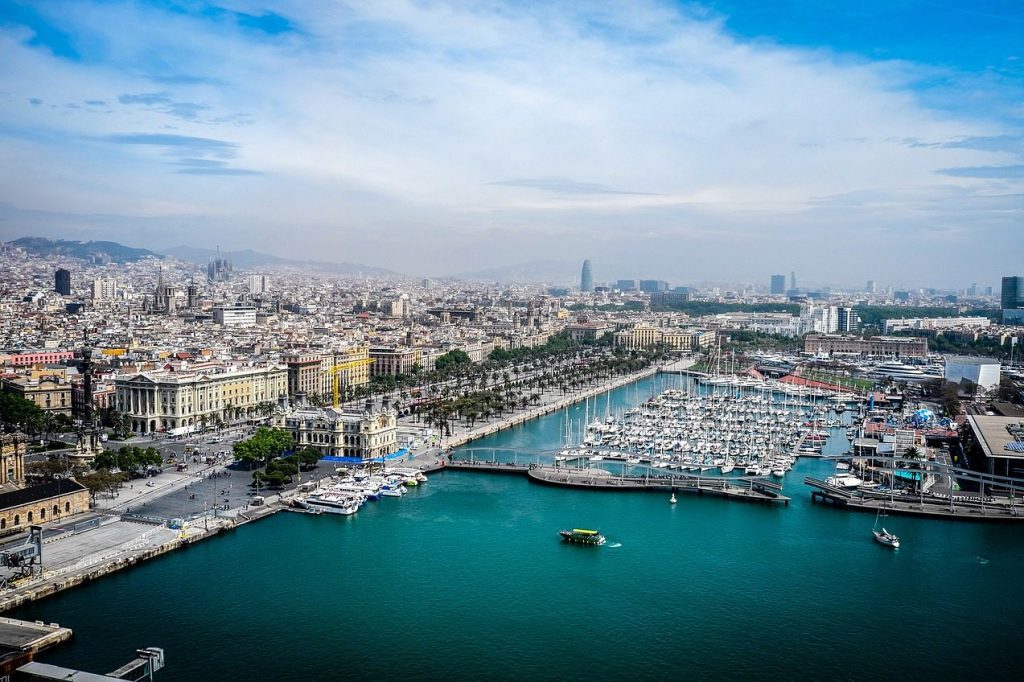Skift Take
Even if Spain lifts its international arrivals restrictions in late June, the country's tourism sector is still on track to take a massive financial hit due to coronavirus shutdowns this year.
Tourism-dependent Spain aims to reopen its borders around the end of June as its coronavirus lockdown fully unwinds, a minister said on Monday, while deaths fell below 100 for the second day in a row.
Madrid last week surprised its European Union partners by imposing a two-week quarantine on all overseas travellers and effectively keeping its borders closed, saying it wanted to avoid a second wave of COVID-19.
But the move was meant to be temporary and Transport Minister Jose Luis Abalos said it would be phased out in parallel with travel being allowed within Spain.
“We can’t allow foreigners to travel while the Spanish population is confined,” he told broadcaster TVE. “From late June, we’ll start tourism activity, I hope … We must make Spain an attractive country from the health point of view.”
Get the Latest on Coronavirus and the Travel Industry on Skift’s Liveblog
Tourism accounts for over 12% of Spain’s economic output. Even with borders reopening in late June, the industry’s revenues will fall by 93 to 124 billion euros ($100 to $134 billion), lobby group Exceltur estimates.
Spain registered 59 deaths overnight from the coronavirus, the second day the number has been below 100 and the lowest in two months, the health ministry said.
The cumulative death toll rose to 27,709, while cases rose to 231,606 on Monday from 231,350 the previous day.
“Today’s data are really good compared to what we’ve seen so far,” Health Emergency Chief Fernando Simon told reporters.
Simon said the mortality rate had decreased from around 11% during the late March peak in Spain to less than 2% for those who developed symptoms between April 27 and May 3.
Encouraged by the statistics, Spain is slowly easing a strict lockdown in place since mid-March that even stopped people from going outside for exercise.
The Health Ministry said on Monday it would expand the use of face masks, currently obligatory on public transport. People must now wear masks in closed spaces and in public if it is not possible to guarantee the minimum safe distance of two metres.
Scant Customers
Restaurants and bars were gradually reopening – even though staff knew customers would be scarce.
In the Mediterranean city of Valencia, restaurant manager Cristina Gonzalo and her staff were out early preparing their beachside bar. Dressed in a white shirt and matching mask, a waiter painstakingly measured out space between tables to comply with social-distancing requirements.
Gonzalo said she had doubts about reopening but was happy to help staff, who had been furloughed under the government’s temporary layoff program.
“They did not receive money to shop for essentials and they were desperate,” she said.
But in a sign many outlets may not survive, football superfan Manolo Caceres – famed for banging a big drum in support of Spain at 10 World Cups – told Reuters he was facing bankruptcy after being forced to close his Valencia bar.
“I’ve lost everything,” said Caceres, 71, known affectionately as “Manolo el del Bombo” (Manolo with the drum).
“I want to sell my World Cup drum because I don’t have enough money to eat,” he added, explaining his 800 euro monthly pension barely covered his mortgage.
The epidemic has put health services under severe stress and battered the economy, which could shrink between 9.5-12.4% this year, followed by a 6.1-8.5% bounce back in 2021, Bank of Spain governor Pablo Hernandez de Cos said.
(Reporting by Emma Pinedo, Jesus Aguado, Inti Landauro, Nathan Allen and Jessica Jones in Madrid; Jordi Rubio and Luis Castilleja in Valencia; Editing by Ingrid Melander, Andrew Cawthorne and Giles Elgood)
This article was written by Inti Landauro and Luis Castilleja from Reuters and was legally licensed through the NewsCred publisher network. Please direct all licensing questions to [email protected].
The Daily Newsletter
Our daily coverage of the global travel industry. Written by editors and analysts from across Skift’s brands.
Have a confidential tip for Skift? Get in touch
Tags: coronavirus, coronavirus recovery, spain
Photo credit: Spain, one of the hardest-hit countries from the coronavirus pandemic, plans to reopen its borders to international tourists as early as late June (Barcelona pictured). LNLNLN / Pixabay
